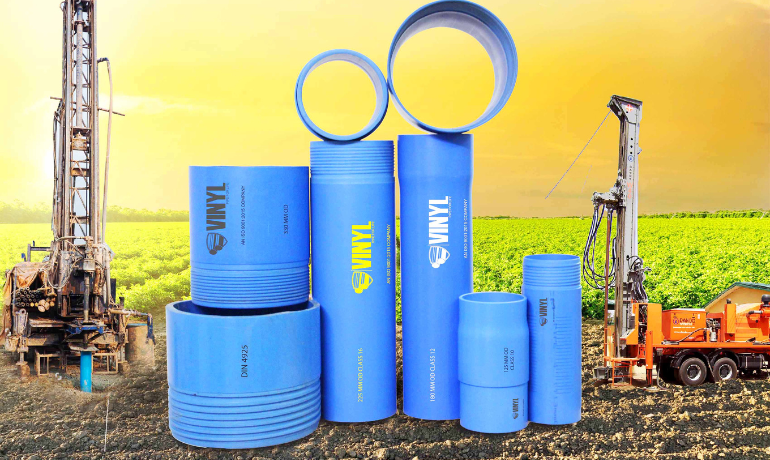
A bore well is the biggest transformation in life man kind. Water the most precious resource under your feet, is like permission to survive and sustain life on the planet in remotest area. Thanks to drilling companies and the teams that work tirelessly to ensure you have water . Man would have never progressed without a water well and would have still existing near the rivers.
At every point of the groundwater is available only thing could. Change is the depth at which is available and than comes the cost of extracting the water from that depth . Vis a vis transpiring water from the rivers to the area .
A borewell is the biggest transformation in the life of mankind. Water, the most precious resource under your feet, is the key to sustaining life. Thanks to drilling companies and the teams who work tirelessly to ensure water reaches even the remotest areas of the planet. Man would have never progressed without water wells, and would be still existing only near the rivers.
However, setting up a water distribution system across localities has never been easy. Failed drilling, breaks or corrosion in the pipe, and supply of poor quality water are some of the common challenges faced all over the world. But only for so long. With changing times, customer expectations have also risen. And businesses wanting to operate in this market need to up their game with proper investments to improve their water supply system.
An important aspect of this is the water supply pipes. Strong, durable pipes of high quality will not only deliver consistently good quality water, but also save you from the cost and efforts required for multiple repairs and replacement.
But how do you decide which are the best pipes for your usage? Here are the features you should look for:
Do your pipes offer these features? Or are you convinced that the most commonly used Galvanized Iron (GI) pipes are the best you can afford? Take a look at the comparison with uPVC pipes, and you may consider changing your opinion:
GI pipes are made of iron and coated with zinc. GI has been used extensively in the water well industry. GI pipes are known for their low cost, high durability, and long life span.
However, with a surge in demand for high quality water, the popularity of these GI pipes is decreasing. These pipes are prone to corrosion, and can easily react with the chemicals present in soil. As a result, the water becomes unfit for use, and one can’t drink it without proper filtration.
On the other hand, uPVC or Unplasticized Polyvinyl Chloride Pipes are a far superior product than GI pipes. They are durable, light weight, corrosion resistant as well as easy to install. Not to forget, they are highly cost effective!
Some of the prominent features include:
Further advantages of using uPVC pipes over GI pipes are depicted in the table below:
|
GI Pipes |
uPVC Pipes |
|
|
Durability |
Very durable |
As durable as GI pipes |
|
Bendability |
No |
No |
|
Tensile Strength |
Rigid, cannot flex when experiencing load. It will collapse when it reaches the load-bearing capacity |
Extremely tensile, and can flex without breaking when experiencing high loads |
|
Compatibility to Hot and Cold Water |
Affected by hot water, can only be used to supply cold water |
Can be used for supply of both hot and cold water |
|
Corrosion |
Made of metal, and thus prone to rust |
Resistant to internal corrosion of pipes, as well as external corrosion due to soil elements |
|
Food Grade |
Can be contaminated easily, not food grade |
uPVC pipes are food grade, and free from toxic metal contamination |
|
Chemical Resistant |
No, can easily be affected by chemicals used to clean the wells |
Yes, remains unaffected by chlorine if present in water |
|
Fire Resistant |
No |
Yes |
|
Bacterial Growth |
High |
Very Low |
|
Ease of Installation |
Heavy, so installation is time consuming and requires more labour and resources |
Light-weight, easy to transport and install. Requires less labour and resources, and can be easily assembled |
|
Scale or Pit Formation |
Occurs for GI pipes |
uPVC pipes are non-corrosive and resistant to scale formation, there’s no build up or any formation that causes loss of water pressure |
|
Maintenance |
Requires repair and maintenance in case of leaks or breakage |
Have a high compressive strength, so they are light and stress resistant. Maintenance is rarely required |
|
Cost Effectiveness |
Less cost-effective |
Quality uPVC pipes are much more cost-effective than iron pipes |
uPVC pipes are undoubtedly the best variant of pipes, and are largely being deployed in several corners of the world. It brings longevity and quality into the process of well drilling, at the same time promising you better margins.
To gain more insights on the pricing and delivery of uPVC pipes, book a consultation. How they impact the life of pumps and well.